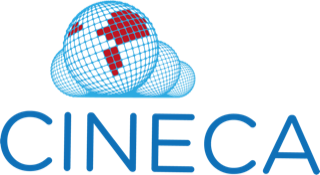Connect with CINECA - Emma Garlock
Meet the CINECA team and see the people behind the scenes as part of our Connect with CINECA series.
Emma is a bioinformatics graduate student in the Molecular Biology and Biochemistry department at Simon Fraser University, Canada, under the supervision of Dr. Fiona Brinkman. Emma’s research focuses on how lifestyle may play a role in the development of microbiome dysbiosis associated with particular disease phenotypes. Within CINECA, Emma has been working on developing standardized vocabulary for the CHILD Cohort Study, which contributes to Work Package 3-Cohort Level Metadata Representation.
Have you used any new tools or applications recently that have helped improve your workflow?
I have been using Ontoma, a Python module that has an Ontology Lookup Service and Zooma wrapper, to help assign ontologies to my dataset. Ontologies are standardized terms that have a unique identifier and exist in a hierarchy with its relationship to other terms clearly defined. You can consider this a step up from a dictionary that just has lists of terms with their definitions, but you aren’t explicitly told how any of the words relate to each other. Using ontologies helps to standardize datasets and increase interoperability, but assigning ontologies to large datasets can be daunting, so it is good to have some automation. I have a BSc in Biochemistry and have never taken any computer science courses, but this was a very easy tool to use that had a huge impact on how I went through my workflow. One caveat is that I was assigning ontologies to medical data, which has a lot of context that can be difficult to capture when using a computer to assign an ontology, but this forced me to get very familiar with my data and taught me how to critically evaluate a tool to make sure it suited my needs.
What type of work do you try to accomplish while traveling/How do you use your travelling time?
When I wasn’t working from home, I liked to use travel time as a clear delineation between “work” and “home”. I would avoid working during my commute and instead use the time to listen to a news podcast. This is also the way I ensure that I keep up on current events that aren’t related to the most recent papers released in academic journals. However, living on the west coast of Canada means that all my eastern collaborators have had lots of time to send me emails by the time I’m heading into the lab, so I will also use that time to respond to emails from my phone.
If someone was about to start in your field, what are the top things they should know?
Know how to use your data responsibly. Big data is helping us solve many problems, but it can also be used to perpetuate inequities and uphold biases. Initially, thinking about this can be difficult for those of us who have more “hard science” backgrounds . For anybody interested in learning more about this and how to think critically about how data is used, I would recommend reading “Weapons of Math Destruction” by Cathy O’Neil.
Pick one coding language to learn, but don’t feel you need to be an expert in it. You will see a lot of debate over the best language to start with, but it doesn’t matter, they all have their uses. So do your research and decide which one will work best for your anticipated use cases. If you end up picking one that is not useful, at least you now know how to learn a coding language and can pick the next one up faster.
Keep up to date on the basics of your field (for me, it would be making sure I can explain the basics of genetics and microbiology, for somebody else, the basics of HTML or Python). As you progress, you learn more about the complicated processes and build on the body of knowledge you already have, which is great for you and your research. As we progress, we take for granted that to us, the basics are just simple facts that don’t require explanation because they seem so logical. Doing bioinformatic research is a very collaborative process and you are working with people who have very different academic backgrounds than you. If you can’t explain the simple stuff to them, you will have a much harder time communicating your research goals and problems to them.
Do you have a music playlist for work? What’s on it?
I have different playlists depending on the type of work I am doing. But if you see me with headphones on while working you can make a safe bet that I am listening to a Hans Zimmer score. The Planet Earth II and Hidden Figures scores are my favourite for when I really need to focus.
How has remote working impacted on your work?
Since I do no wet lab work, I think my transition to remote working has been easier than most. I am very lucky that I have not had to set aside any of my research due to remote working. But like many people, especially young grad students like myself, the apartment I live in is very small and it can be difficult to carve out a designated place to work when there wasn’t much free space to begin with. During the first few weeks it was very difficult to focus at home because I wasn’t used to working in that environment. It is much better now, but there are still days when it is more challenging to be productive. It is important for us all to acknowledge that in the wider context, lower productivity is not something to worry about, as our health - both mental and physical - needs to be the primary concern of us all.

